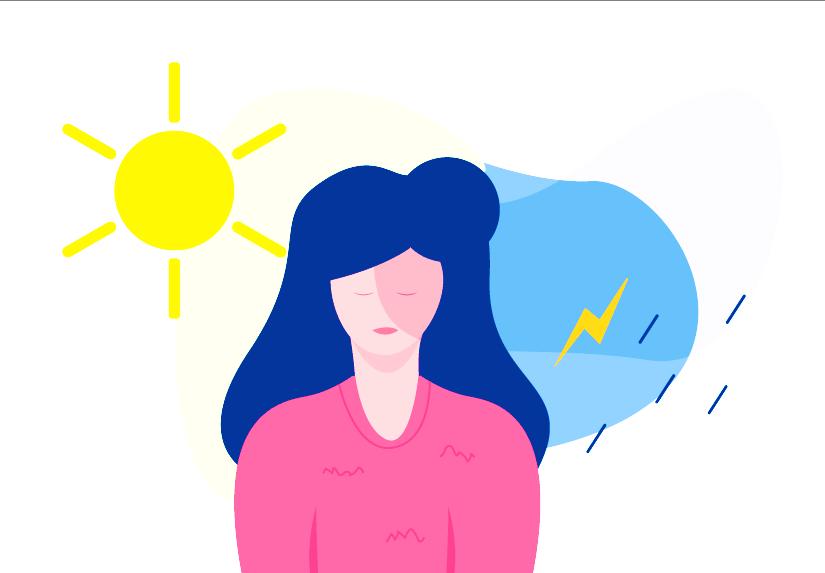
3 minute read
Red flags to be aware of when seeing a therapist
Here are some signs that the therapist you are seeing is working in a professional and effective manner:
Professionalism: A good therapist should behave in a professional manner. They should be punctual, organized, and respectful. They should maintain clear boundaries and should not disclose personal information about themselves.
Advertisement
Empathy: A good therapist should be able to demonstrate empathy towards their clients. They should listen attentively to their clients' concerns, show compassion and understanding, and help them feel comfortable and supported.
Active listening: A good therapist should be an active listener. They should pay close attention to what their clients are saying, ask clarifying questions, and reflect back what they hear to ensure they fully understand their clients' concerns.
Collaborative approach: A good therapist should work collaboratively with their clients. They should encourage their clients to be active participants in the therapy process, and work with them to develop achievable goals and strategies for achieving those goals.
Evidence-based approach: A good therapist should use evidencebased approaches to treatment. They should be knowledgeable about the latest research in their field and be able to provide their clients with evidence-based treatments that have been shown to be effective for their specific concerns.
Mental Health Professionals in the Southern Region of Malawi
Zomba Psychiatric Hospital 015 262 66
Limbika Maliwichi (Clinical Psychologist)
0993 662 154
Julie Soko (Consultant Psychologist)
0995 147 290
Prism Counselling and Consultancy (Zomba)
0998 933 273
Dr Chiwoza Bandawe. Harmony Counselling Centre
0888 200 222
Dr Precious Makiyi (Child & Adolescent Mental Health Professional)
0999 426 368
Accord Cognitive Counselling Services
0882 431 111
Vintage Health Wellness Centre (Namiwawa)
0995 260 153 / 0883 859 724
Blantyre Counselling and Therapies Centre
0996 299 888
Tilinao Lamba (Counselling Psychologist)
0885 795 906
Ruth Mkolesia (Counselling Psychology)
Seed of Hope 0993 110 993
Dr Alli Makalani
0888 611 127
Dr Mathero Nkhalamba 0884 20 34 34
Some people feel sad when the seasons change, especially when it gets darker and colder. This is called seasonal affective disorder (SAD) and it's a kind of depression. It usually happens in places where the sun doesn't shine much in winter, but it can also happen in African countries.
We don't know how many people in Africa have SAD, because it might depend on where they live and how they cope with it. Maybe people who live near the equator don't get SAD as much because the days are always about the same length. Maybe people who have strong family and community ties don't show their SAD as much.
The good news is that SAD can be treated with different things like bright lights, talking to a therapist, or taking pills. If you feel depressed when the seasons change, you should talk to someone who can help you feel better.

Differentiating SAD and Depression
Seasonal affective disorder is very similar to regular depression. Individuals with SAD may actually have more symptoms of depression than those who have been diagnosed with regular depression; however, these symptoms only occur seasonally. SAD is a milder form of a major depressive disorder.
One notable difference is that, with SAD, there will be times of the year where you can laugh and receive comfort and live a somewhat normal life. With depression, it can be tough to get enjoyment from anything or take part in your usual social activities.
Depression also often brings symptoms of body aches, feelings of worthlessness, and suicidal thoughts.
Some possible ways to deal with SAD are:
Use light therapy. This is when you sit near a special light box that mimics natural sunlight and helps your brain to make happy hormones. It can work in a few days or weeks and has few side effects¹.

Talk to a therapist. This is when you share your feelings and thoughts with a trained professional who can help you cope better and change your negative patterns. A type of therapy called cognitive behavioral therapy can be especially helpful for SAD¹.
Take medication. This is when you take pills that can balance your brain chemicals and reduce your depression symptoms. Some antidepressants can also prevent SAD from coming back¹.





By now, we hope you are aware that you can access mental health care from all the Central (Referral) Hospitals in the country.
Here is something to take note of, before you can get to the Central (Referral) Hospitals, you need to first visit your local District Hospital in order to be assisted. This applies to mental health care as well.
Once you have been assessed, the medical staff (a psychiatric nurse or clinician) will then determine whether you need to be referred to the Central Hospital, which also provides comprehensive care for mental health challenges.
Please take note of the list of District Hospitals available in Malawi.
Chitipa District Hospital
Karonga District Hospital
Mzimba District Hospital
Nkhata Bay District Hospital
Rumphi District Hospital
Dedza District Hospital
Dowa District Hospital
Kasungu District Hospital
Mchinji District Hospital
Nkhokota District Hospital
Ntcheu District Hospital
Ntchisi District Hospital
Salima District Hospital
Balaka District Hospital
Chikwawa District Hospital




Chiradzulu District Hospital
Machinga District Hospital
Mangochi District Hospital
Mulanje District Hospital
Would you like to advertise your mental health services with Essential Grace Magazine?
Get in touch with us for your free offer of mental health related advertising be it for counselling services, support groups, books, upcoming events, and wellness services (e.g. Fitness, massage therapy)

Mwanza District Hospital
Nsanje District Hospital
Phalombe District Hospital
Thyolo District Hospital
Zomba District Hospital




